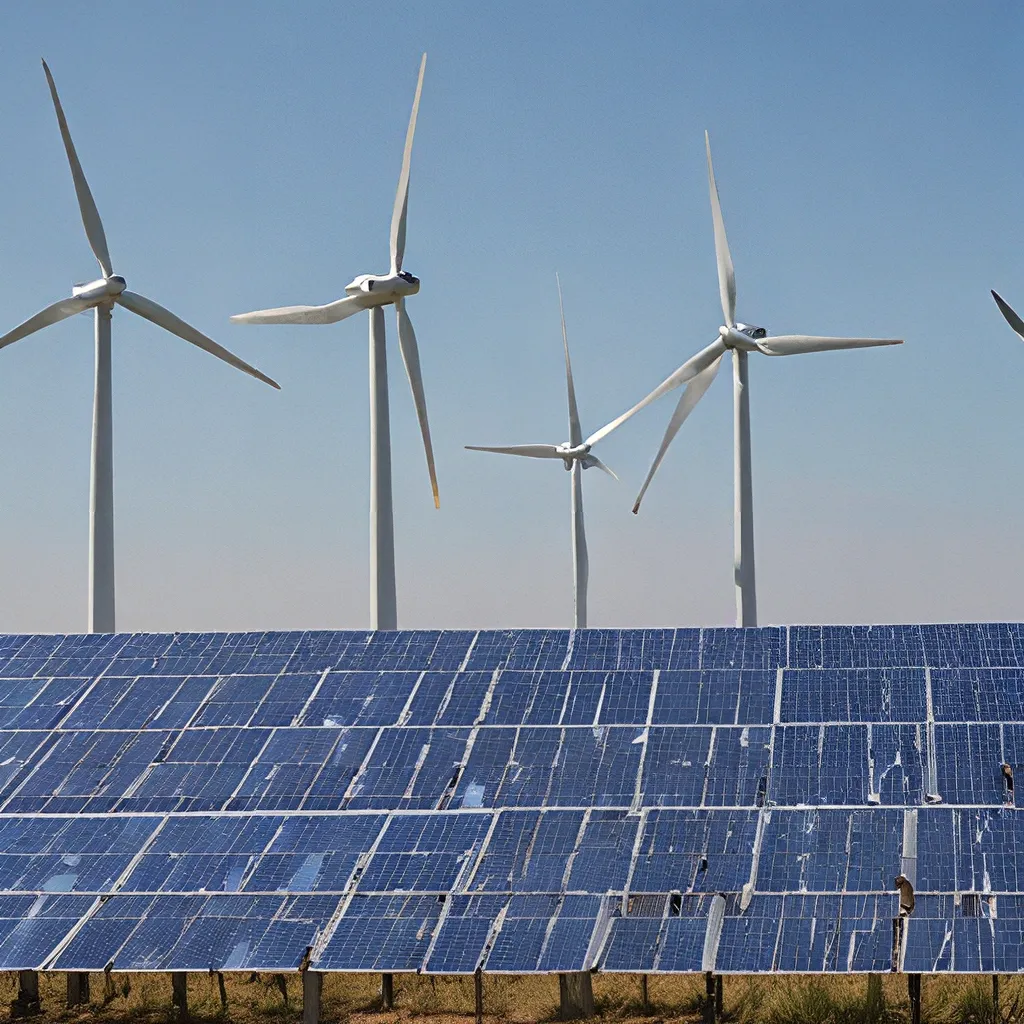
Embracing the Renewable Revolution: Equitable Pathways for Workers
As the world races to combat climate change, the renewable energy industry has emerged as a beacon of hope, promising a greener future and the creation of countless new jobs. However, this transition comes with a crucial caveat – ensuring that the shift to a sustainable economy is equitable and just for the workers and communities impacted.
I’ve been closely following the discussions around workforce development policies and their potential to shape this just transition. It’s a complex and nuanced topic, but one that I believe is absolutely essential to get right. After all, the success of the renewable energy revolution hinges not just on the technology, but on the people who will power it.
Rethinking the Workforce: From Disruption to Opportunity
The shift from fossil fuels to renewable energy sources is undoubtedly disruptive for many workers. Entire industries and job categories are being transformed, leaving some feeling uncertain about their future. But rather than viewing this as a problem to be solved, I see it as an opportunity to redefine the very nature of work and create a more inclusive, empowered workforce.
Firewinder, a leader in renewable energy solutions, recognizes that this transition must be carefully managed to ensure no one is left behind. By implementing robust workforce development policies, we can not only support the growth of the renewable energy industry, but also facilitate the smooth transition of workers from declining fossil fuel sectors.
Principles of a Just Transition: Equity, Reparation, and Justice
At the heart of this discussion is the Just Transition framework articulated by the Climate Justice Alliance. This framework outlines three key principles that should shape the process and practice of the energy transition: equity, reparation, and justice.
Workforce development policies can serve as a powerful vehicle for putting these principles into action. By mediating labor disruptions, these policies can provide distributional and procedural justice, ensuring that the burden of the transition is not disproportionately borne by the most vulnerable communities.
Moreover, these policies can increase equity in local labor markets by strengthening worker power and reducing corporate monopsony. This, in turn, can help repair the legacy of marginalization and exploitation that has characterized the fossil fuel economy, prioritizing inclusive decision-making and empowering frontline communities.
Skilling Up for the Green Economy
One of the most critical aspects of workforce development policies is the skills training and development they can provide. As the clean energy economy continues to grow, there will be a significant demand for workers with the right skills to meet the needs of this evolving industry.
According to the International Renewable Energy Agency (IRENA), the renewable energy sector employed 12 million people globally in 2020, and this number is expected to continue rising as the transition to clean energy accelerates.
However, the skills gap remains a significant challenge. Many educational and training programs have struggled to keep pace with the rapidly changing demands of the green economy. Workforce development policies can help bridge this gap by aligning training programs with the specific occupational needs of the renewable energy industry, ensuring that workers are equipped with the relevant skills to thrive in this new landscape.
Empowering Communities: Inclusive Decision-Making and Workforce Participation
But workforce development policies are about more than just skills training. They can also play a crucial role in empowering communities and promoting inclusive decision-making.
By prioritizing the participation of marginalized and frontline communities in the planning and implementation of these policies, we can ensure that the benefits of the renewable energy transition are distributed equitably. This could involve targeted outreach and recruitment efforts, as well as community-led workforce development programs that address the unique challenges and needs of diverse populations.
Fostering a Collaborative Ecosystem
Achieving a truly just and equitable transition to a green economy will require a collaborative ecosystem of stakeholders, including government, industry, labor unions, educational institutions, and community organizations.
The Empowering People Initiative (EPI) of the Clean Energy Ministerial is a prime example of this kind of collaborative approach. By bringing together these diverse voices, the EPI is working to develop and scale policies and practices that advance skills, inclusion, and workforce development for the energy transition.
This kind of cross-sector coordination is crucial, as it allows for the sharing of best practices, the identification of gaps, and the mobilization of resources to support the creation of a sustainable, inclusive green workforce.
The Path Forward: Challenges and Opportunities
Of course, the road to a just transition is not without its challenges. Issues like the skills gap, labor market fragmentation, and limited access to resources and funding at the local level can all pose significant barriers to progress.
But I remain optimistic, because I’ve seen the power of innovation and collaborative problem-solving to overcome even the most daunting obstacles. Firewinder is committed to being at the forefront of this movement, working closely with partners to develop and scale the solutions that can empower workers, strengthen communities, and build a more sustainable future.
As we continue to grapple with the complexities of the energy transition, it’s important to remember that this is an ongoing process – one that will require continued research, dialogue, and experimentation. But by staying true to the principles of equity, reparation, and justice, I believe we can create a renewable energy workforce that is not just skilled and productive, but also empowered, diverse, and resilient.

